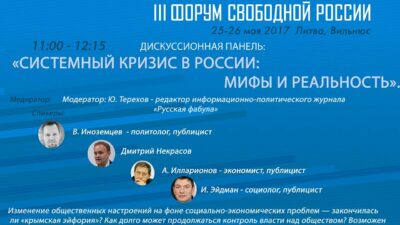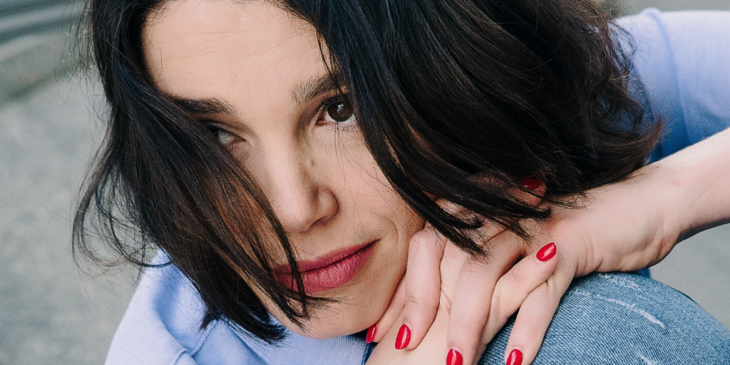
Zhanna Nemtsova is a Russian journalist and the founder of the Boris Nemtsov Foundation, which is named after her father, the opposition politician and former first deputy prime minister, who was assassinated in Moscow five years ago, on 27 February 2015.
Following the murder, Nemtsova left Russia and settled in Bonn, Germany, where she continued her journalistic career. Working for Deutsche Welle’s Russian service, she has been the host and the producer of the programme Nemtsova. Interview.
In this exclusive interview, Zhanna Nemtsova shares her thoughts about disinformation and propaganda in Russia. She also reflects on the role independent media can play in countering the propaganda and tells about her future plans in leading the work of the Boris Nemtsov Foundation.
A very peculiar value system
Q. First a question about terminology: When we talk about the information strategy of the Russian state media and what we see on the federal television channels, which term do you prefer: propaganda, fakes, disinformation? Or another term?
A. Probably, after all, propaganda – because fakes and disinformation are rather tools of the propaganda. I believe that propaganda is the best general concept for describing what is happening on the TV screen.
This propaganda is a continuation of a very peculiar, even rather absurd, value system that combines militarism, Orthodox traditions, and a number of other archaic values, which are not very correlated with each other. That’s what propaganda means to me.
An atmosphere of hatred inspired by state TV
Q. You have earlier made quite tough statements about the pro-Kremlin media outlets: you have said that “propaganda kills” and called them “criminal”. You have also directly connected the murder of your father with the propaganda campaigns. Has your position changed since then, or do you still hold the same views?
A. I think the power of propaganda since then has weakened somewhat. I will explain why: it is important to remember in what context the murder of my father was committed.
The annexation of Crimea in 2014 led to an unprecedented rise in Putin’s rating. After that, the war in Donbass began, which, although less supported by the Russian population, also contributed to the growth of patriotic sentiments.
All this euphoria around the annexation of Crimea freed the hands of the authorities, so that they openly waged a campaign against those who spoke harshly of Russia’s actions against Ukraine.
I’m sure that without Putin’s policy towards Ukraine, without this large-scale propaganda, the killing of my father would not have been possible.
It was the historical context, this atmosphere of hatred inspired by state TV channels and other information resources, which made it possible. In this regard, I have not changed my position.
 On 27 February 2015, Zhanna Nemtsova’s father, opposition leader and former first deputy prime minister of Russia, Boris Nemtsov, was gunned down with four shots in his back a few hundred meters from the Kremlin. His murder was preceded by a massive disinformation campaignagainst his person.
On 27 February 2015, Zhanna Nemtsova’s father, opposition leader and former first deputy prime minister of Russia, Boris Nemtsov, was gunned down with four shots in his back a few hundred meters from the Kremlin. His murder was preceded by a massive disinformation campaignagainst his person.
It’s another matter that now, of course, there is still propaganda, and it continues to exert some kind of influence on people; but it seems to me that its influence is far from being as powerful as before.
Firstly, Crimea itself is no longer able to maintain Putin’s rating; secondly, the standard of living in Russia is declining, and economic stagnation and social problems are now on the top of the agenda. The news about Ukraine that is imposed by television, and even more so news about Syria, no longer leads to an increase in the approval of the authorities.
Now we see that Putin seems to have decided to rule forever, in one capacity or another – and this clearly indicates that there is fear at the top that his level of approval has seriously fallen.
In addition, it is important to understand that all this is passive support. Yes, there are people who support the president’s decisions – but it’s hard to imagine crowds taking to the streets to support Putin if he would suddenly need an active and genuine popular support. That’s just not realistic.
My father was a realistic presidential candidate
Q. Do you think that the situation with disinformation is special in today’s Russia, or can it be compared with the situation in other countries?
A. Perhaps you can take the example of Ukraine – there is now a fundamentally different situation with the media, approximately the same as in Russia in the 90s, when large capital controlled the main television channels.
Something similar is happening now in Ukraine, and in this, of course, not good at all. When we in Russia today talk about disinformation, about propaganda, about fakes, we seem to forget that everything was the same in the 90s.
At the time when my father became the first deputy prime minister, the main Russian TV channels were controlled by large capital. ORT, say, as a state television channel, was in fact controlled by Boris Berezovsky, and NTV by Vladimir Gusinsky.
The year after the assassination of Boris Nemtsov, his friend and political ally Vladimir Kara-Murza produced a documentary about the opposition leader. Click to watch the film with English subtitles.
ORT and NTV quite successfully joined forces and brought down the rating of my father. If at the time of joining the government, his rating was, I believe, even higher than that of [Communist Party leader Gennady] Zyuganov – that is, my father was a completely realistic presidential candidate – then after that media campaign, he fell almost to zero.
So we should not idealise the 90s: yes, maybe the situation then was still a little better than now, because there was competition, due to the fact that different oligarchs owned different TV channels.
Only one goal: for Putin to remain in power forever
Q. What purpose – or purposes – does the disinformation and propaganda serve today, in your opinion?
A. There is only one goal: for Putin – and all his close associates, the inner circle – to remain in power forever, that’s all.
And for this it is necessary, firstly, to divert attention from really serious social problems; to feed people with some news that is insignificant to our country, and, secondly, of course, to discredit any person who could potentially – very potentially, I’m sure that all threats are exaggerated by our authorities – pose a threat to the stability of the regime. That’s it, there are no other goals.
Of course, sometimes there are separate campaigns related, for example, to elections in different European countries when Russia is accused of interference, but this, again, serves the same purpose – to remain in power.
Interference in elections is necessary for politicians more loyal to them to come to power in Europe, so that separate negotiations, say, on lifting sanctions, could become possible.
When food becomes rationed
Q. Let us then turn to the question of what to do about it. Do you think traditional journalism can represent a threat to propaganda? Or are there other methods of fighting propaganda which are as effective or even more effective?
A. The problem is that those journalists who engage in impartial, objective journalism simply do not have access to the state-owned TV channels.
Even if they somehow get there, they will participate in the play as extras – for example, I am generally opposed to respected journalists and experts taking part in talk shows on the federal television channels.
It is clear that it is difficult to fight when you do not have access to such an important source of information as television. Nevertheless, I think that now in Russia, the propaganda does not work anymore with a certain audience, and this is due to the flourishing of the Internet and the growing influence of individual journalists.
Take [Alexey] Navalny, for example – I don’t know whether you can call him a journalist, but, in any case, he is a public figure and politician with a huge media audience, and, of course, his [YouTube] channel, where he talks not only about corruption scandals, but also about a lot of other things – that is a very important tool of informational influence. And there is [YouTube blogger] Yuri Dud who not only does excellent interviews, but also makes films.
Anti-corruption activist Alexey Navalny produces videos that are watched by millions of Russians. In December, EUvsDisinfo wrote about this production, “The Yacht. The Plane. Forbidden Love for your Money”, which has so far been watched by more than 5,8 million times.
The growing popularity of prominent journalists, of course, leads to the enlightenment of a certain circle of people. However, despite all this, the effect of the Internet is still limited.
There is also the problem of the age of the audience, because mostly young people are on the Internet, and older people are more actively going to the polls.
As for the other methods of combating propaganda, paradoxically, sooner or later the propaganda will outlive itself. Just because people cannot help but trust their own eyes – they watch TV, but when they turn their eyes to what happens in the street, suddenly there is a certain contrast.
Remember the Soviet Union in the 80s, how much propaganda there was, all this state television, state radio and so on – and no one really believed in it.
You see, propaganda is very much tied to – at least in Russia, we will leave the situation in North Korea aside – to what is really happening in people’s lives. No propaganda will do the job when people have to wait in lines and food becomes rationed – then people will not believe in it anymore.
The independent media still have to make concessions
Q. You left Russia after the murder of your father. Five years have passed since then. In your opinion, is it still dangerous in modern Russia to criticise the authorities and the state propaganda, to engage in journalism and political activism? Or has the situation changed somehow?
A. It has changed, but for the worse. The Moscow case, the “New Greatness” case, the “Network” case, the refusal to register candidates for elections, the persecution of individual journalists – the situation is changing for the worse, and this does not surprise me.
I have never been an optimist in this respect, it has seemed to me for a long time that things were pretty bad – and after Crimea, I realised that everything is so terrible that absolutely nothing is up for discussion; after Crimea, nothing will change for the better. Crimea was a very significant political step, a way in which Putin and the Russian government challenged the entire the world.
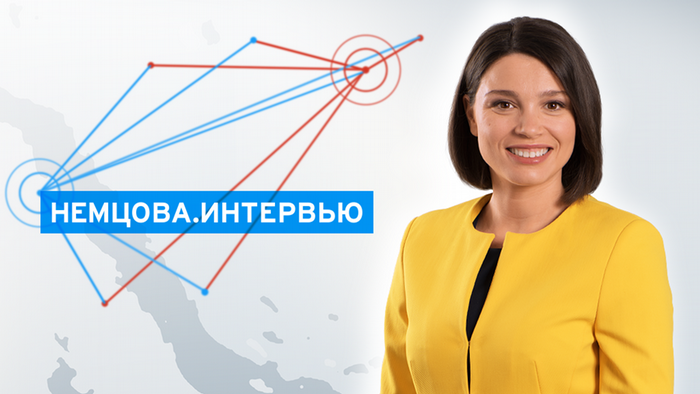 Working for Deutsche Welle’s Russian service, Zhanna Nemtsova has been the host and the producer of the programme Nemtsova. Interview.
Working for Deutsche Welle’s Russian service, Zhanna Nemtsova has been the host and the producer of the programme Nemtsova. Interview.
And it is clear that if they were not afraid to cross this line, then engaging in targeted political repressions is a matter of course.
As a foundation, we monitor political repressions, and we see that the situation is getting worse, that there is an endless stream of more and more new cases.
Yes, independent media are trying to somehow work in these conditions, but still they have to make concessions.
More time for the Boris Nemtsov Foundation
Q. Finally, please tell us just a few words about your plans now.
A. I worked for almost five years on the RBC channel, then as long time for Deutsche Welle, and now I want to take a break.
Because in parallel with my main employment, Olga Shorina and I have built the Nemtsov Foundation, from scratch and on our own, and this is hard work – all the more so because all this happened in Germany, so I also had to learn German in between trips, and sometimes give speeches, and everything else.
So now I want to pause to understand what I would like to do further in the field of media.
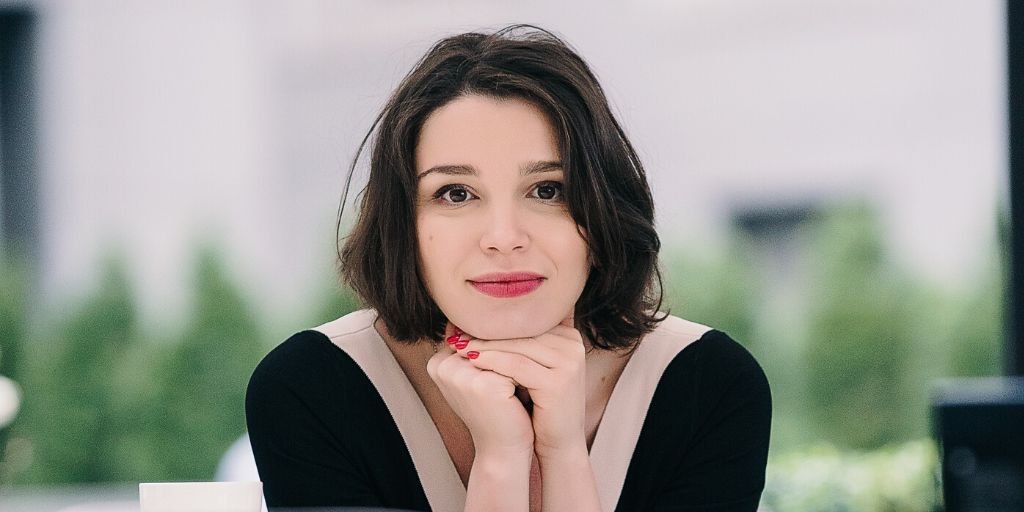 “I’m going to devote more time to the Nemtsov Foundation and expand its activities. Of course, we are proud of what we have done: the Forum, the Prize, the Nemtsov School, and the Nemtsov Centre; but all this requires development and my personal attention”. Photo by Yuri Boyko.
“I’m going to devote more time to the Nemtsov Foundation and expand its activities. Of course, we are proud of what we have done: the Forum, the Prize, the Nemtsov School, and the Nemtsov Centre; but all this requires development and my personal attention”. Photo by Yuri Boyko.
Firstly, I just didn’t have time to think about it somehow, to understand what ideas I have at all, because my head was constantly busy with whom to call on the air next week, and so constantly – I myself was a producer of my programme.
And secondly, the situation in the media space has changed very much over these five years. Now anyone has their own YouTube project – there is an incredible number of them, and they all actually fight for the same audience.
Out of this audience of around a million people, only a few have really made it, we all know them, this is [Alexey] Navalny and [Yuri] Dud’. That’s all, nobody else has succeeded.
So, despite the advice I hear from many people that I should “create my own YouTube channel”, I don’t want to do this now just in order to stay visible.
But I’m going to devote more time to the Nemtsov Foundation and expand its activities. Of course, we are proud of what we have done: the Forum, the Prize, the Nemtsov School, and the Nemtsov Centre; but all this requires development and my personal attention.
Top photo of Zhanna Nemtsova by Yuri Boyko.
Further reading:
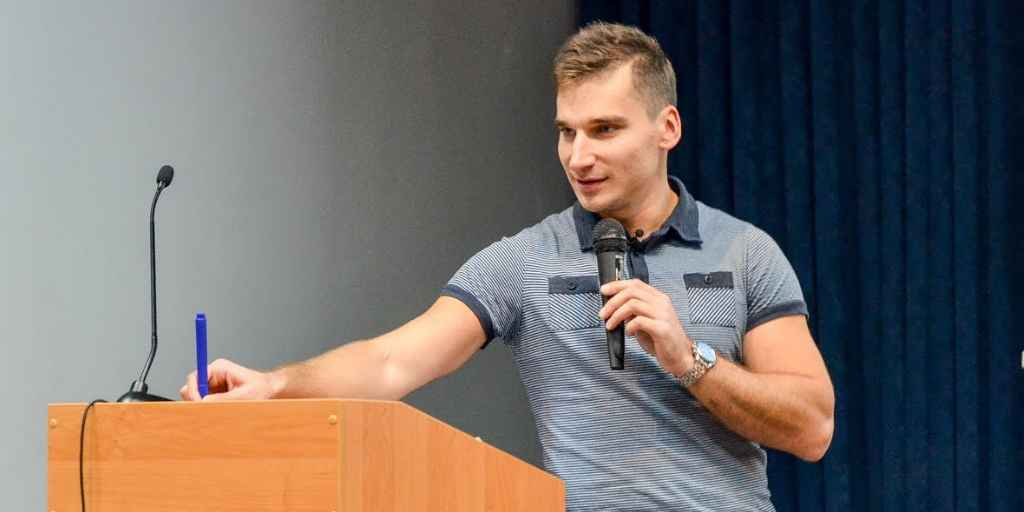 “The propaganda digs a cultural ditch between Russia and Europe”: Pavel Kanygin has covered the MH17 case as an investigative journalist with Novaya Gazeta. Read the full interview.
“The propaganda digs a cultural ditch between Russia and Europe”: Pavel Kanygin has covered the MH17 case as an investigative journalist with Novaya Gazeta. Read the full interview.
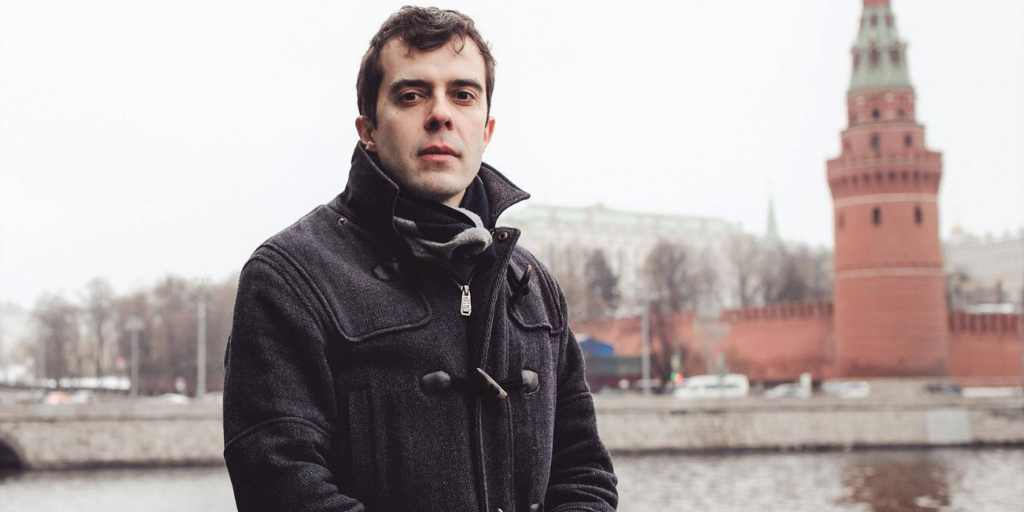 “’Information war’ is a term used by the Kremlin to justify disinformation”: Roman Dobrokhotov won the 2019 European Press Prize Investigative Reporting Award for exposing disinformation in the Skripal case. Read the full interview.
“’Information war’ is a term used by the Kremlin to justify disinformation”: Roman Dobrokhotov won the 2019 European Press Prize Investigative Reporting Award for exposing disinformation in the Skripal case. Read the full interview.
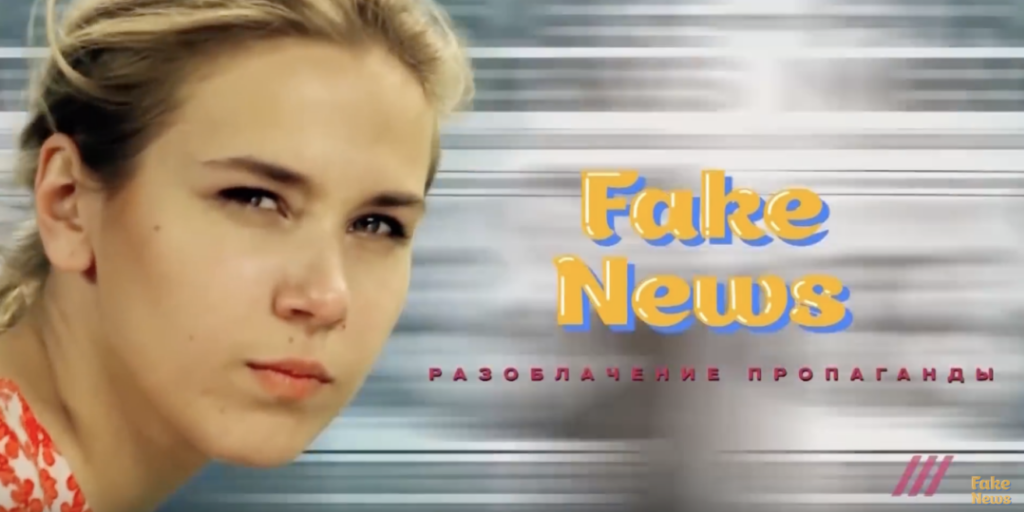 “Distracting the audience from the real problems“: Every week, Maria Borzunova challenges pro-Kremlin disinformation in her programme ‘Fake News’ on the independent TV Rain. Read the full interview.
“Distracting the audience from the real problems“: Every week, Maria Borzunova challenges pro-Kremlin disinformation in her programme ‘Fake News’ on the independent TV Rain. Read the full interview.
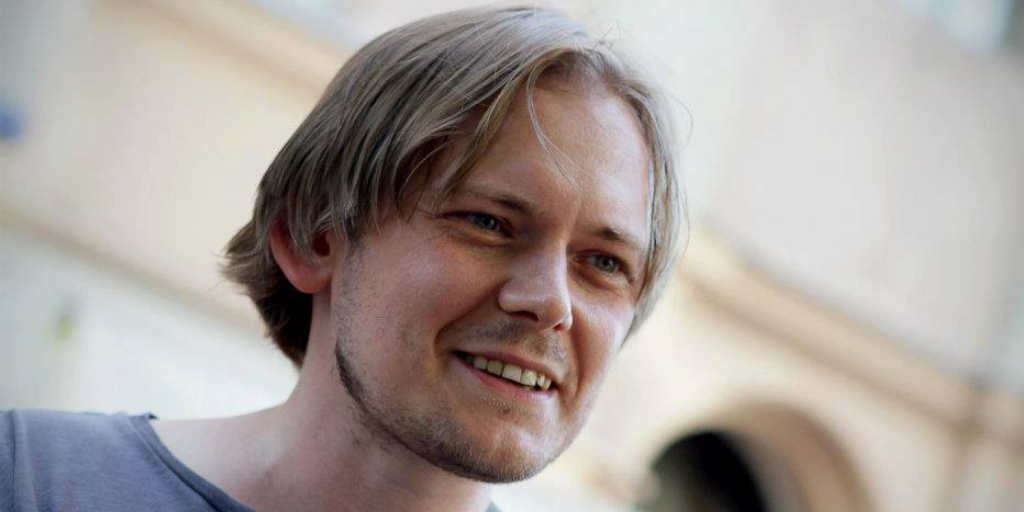 “Propaganda Must be Opposed by the Language of Values”: Andrei Arkhangelsky is one of Russia’s most prominent commentators on the topic of disinformation. Read the full interview.
“Propaganda Must be Opposed by the Language of Values”: Andrei Arkhangelsky is one of Russia’s most prominent commentators on the topic of disinformation. Read the full interview.
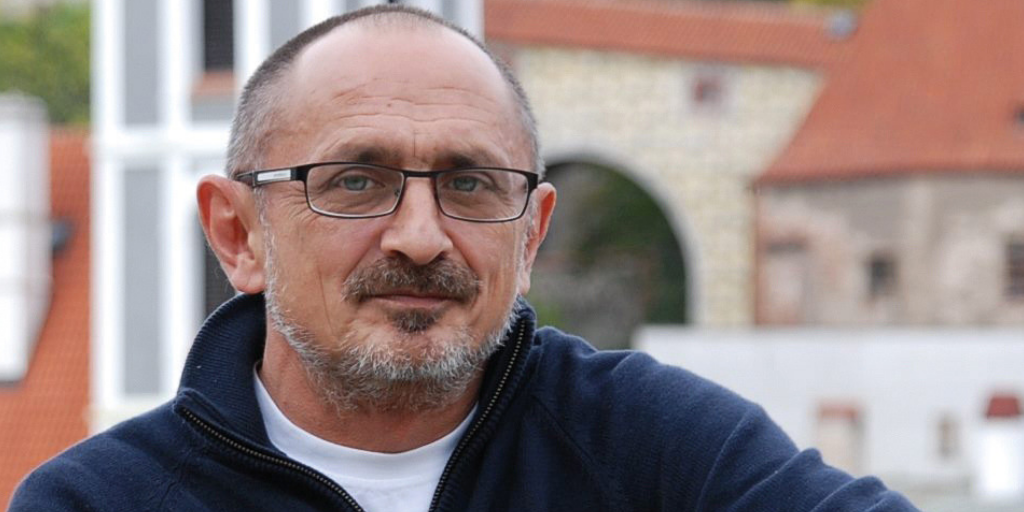 “They are Convinced that Russia Should Follow Guerilla Tactics“: Alexander Morozov is a Russian journalist and researcher with the Boris Nemtsov Academic Center in Prague. Read the full interview.
“They are Convinced that Russia Should Follow Guerilla Tactics“: Alexander Morozov is a Russian journalist and researcher with the Boris Nemtsov Academic Center in Prague. Read the full interview.



